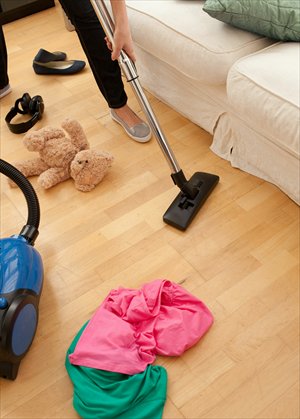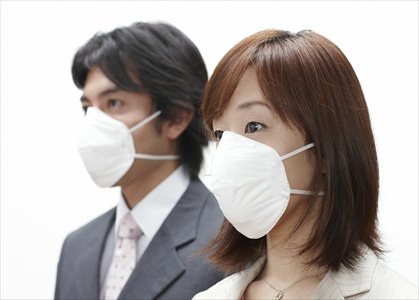HOME >> METRO BEIJING
New homes with hidden dangers
By Louie Cheng Source:Global Times Published: 2013-7-28 18:18:01


Keeping your family safe in a new home can require a lot of investigative work. Photos: IC
Everyone knows at least one friend who has had to move out because that dream home turned out to be a source of headaches, mold, strange smells or allergic reactions. Here are some tips on how to avoid problem homes, especially when you are on the hunt for a new one.1. Avoid basements
Basements often have higher levels of moisture due to domestic pipes, so they can be a haven for mold, which leads to health problems including eye and throat irritation.
2. Avoid new construction and new furniture
New construction and new furniture can introduce TVOCs (total volatile organic compounds) into the home, which can lead to potential health concerns such as burning in the eyes, tightness in the chest and severe headaches.
3. Avoid carpeting and rugs
Floor coverings easily collect particulate matter and allergens. A significant buildup of particles in rugs can lead to respiratory disease, high blood pressure or even lung cancer. Since rugs trap particulate matter, typical foot traffic can then cause that particulate matter to become airborne and then lodged in the lungs. High humidity levels can also result in damp carpets and rugs, which can increase the likelihood of mold spores and bacteria growth.
4. Check for water damage or leaks from the outside
Water damage or leaks can lead to mold spores and other pollutants entering the home. It is important to keep an eye out for these problems and try to remedy them as soon as possible. In addition to signs of interior water damage on the wall, things to look out for include landscaping that goes all the way up to the wall, sloping of the land alongside a structure, poorly-sealed foundations and pools of standing water.
5. Beware of odors - especially musty ones
Unpleasant smells are a clear sign of trouble. Whether from bacterial buildup, a clogged drain pipe or a chemical source, these odors are often signs of unseen pollutants. When visiting a house, it's recommended to ask to see the house with the windows shut. In attempts to hide tell-tale odors, some real estate agents have opened windows and aired out a property ahead of time and closed them just prior to a showing.
6. Look for properly insulated windows and basement
By properly insulating your windows and basement, you can drastically decrease the amount of condensation within your home, which in turn will decrease the relative humidity of your home. In turn, you will reduce the risk of mold and pest growth. This will also pay dividends for your energy bills.
7. Dig into the property's history
Some chemical compounds can remain within the soil for decades. Therefore, what looks like a clean site may once have been exposed to hazardous chemicals. It is critical to request a site history of any residential or office property you are considering. By uncovering the past land use, you may better determine the nature of your site and develop a remediation plan to manage any potential residual risks. Some other approaches include asking some of the older residents in the area about a home's history, or proactively testing the soil and sand around the compound.
8. Choose lead-free, low VOC paint (<50g/L)
VOC-related figures can either be found on the labeling, or by conducting an online search with the paint name and brand alongside the word MSDS. For more humid areas, it is also good to choose an anti-mold paint, or alternatively to mix in an anti-mold paint additive.
9. Insist on an exit clause in your lease pending air testing
By insisting on an exit clause within your home lease pending air testing, you are safeguarding your family by knowing that if after testing, dangerous levels of chemicals or pollutants are present, you can walk away without leaving yourself open to a costly lease payout.
Louie Cheng is the cofounder and president of PureLiving China, a member of the Indoor Air Quality Association, and has trained with the American Council for Accredited Certification and the US Centers for Disease Control and Prevention.
Posted in: Metro Beijing